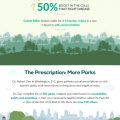Health is the utmost important priority in everybody’s life. Various activities are responsible for keeping our health fit and fine, morning walk is one of them. A morning walk is a physical exercise that improves someone’s well-being.
Most doctors always recommend walking practice to almost every human being. A walk is a neuromuscular act facilitated by both the brain and muscles. Thus, both the brain and body can be easily accessed and improved by simply focusing on the walk.

1. Improves cardiovascular health
A morning walk is vital to keep cardiovascular health perfect. Blood circulation and heart functioning can be increased by controlling bad cholesterol, fluctuations of blood pressure, body temperature, saturation level, and heart activities.
Walking strengthens the body’s heart rate and blood circulation can be escalated throughout the whole body. Oxidized blood reaches every cell of the body and improves the saturation rate by supplying uninterrupted oxygen everywhere. Thus, a morning walk is essential for appropriate blood flow In the whole body. Heart health can be improved by adopting the habit of morning walks in everyday life.
2. Boosts mood and energy levels
A morning walk can improve the good mood and energy level of the body. As it has been proved by science that a morning walk makes the body healthy and fit, which can lead to a positive effect on mood and the body’s energy level. Walking reduces stress and anxiety, and the enjoyment of fresh air and nature can help a person to be cheerful and energetic. Thus, the upliftment of energy and mood can be increased by a morning walk. Another thing you can do besides a morning walk is to start eating healthy food by consulting an online dietician.
3. Helps with weight management
Metabolism plays a vital role in the management of body weight. A morning walk along with other physical exercises can improve the metabolism of the body. Improvement in metabolism assists the body to burn calories at a faster rate and keep the weight of the body in control.
4. Enhances cognitive function
A morning walk improves blood supply to the brain and other parts of the body. The central nervous system and peripheral nervous system are interlinked with the cognitive power, mental concentration, and problem-solving ability of the brain. Walking can boost brain health.
5. Reduces the risk of chronic diseases
Chronic diseases can be minimized among human beings by choosing a morning walk in everyday life. Due to proper blood circulation and physical activity by walking, chances of adverse infections and diseases like Diabetes mellitus, cardiac arrest, hypertension, chronic heart disease, and angina can be reduced.
6. Strengthens bones and muscles
Body motions reduce stiffness in joints by controlling the oscillations in blood sugar, blood pressure, and heart rate. Walking improves blood flow in all the capillaries and veins of the body. Physical exercises like walking also keep nerves healthy and working efficiently, and facilitate neuromuscular coordination throughout the whole body.
7. Promotes better sleep
Walking strengthens muscles, bones, and mental health. It improves mood and reduces the chances of mild to moderate symptoms of depression. Happy hormones and chemicals can be increased in the body by daily morning walks, for example, dopamine and serotonin can be released to boost mode. Thus, sleep can be promoted by morning walks.
Should you walk before or after breakfast?
It is generally recommended to walk after breakfast, especially for elders, as walking on an empty stomach can cause low blood sugar levels and dizziness. Walking after breakfast can also help boost metabolism and aid digestion.
However, some people may find it more comfortable to walk before breakfast, as they may feel too full or uncomfortable after eating. Ultimately, the best time to walk depends on an individual’s preferences and schedule.
What are the emotional benefits of morning walks for elders?
Some emotional benefits of morning walks for elders include reduced stress and improved overall mood.
How long should elders walk in the morning?
The duration of a morning walk for elders depends on their individual health and fitness level. Generally, a 30-minute walk is a good starting point for most elders.
What precautions should the elderly take while walking in the morning?
Elders should take precautions like wearing comfortable shoes, avoiding slippery surfaces, and staying hydrated during their morning walks. They should also consult with a doctor before starting any new exercise routine.
Conclusion
To step into a healthier life, a human being needs to make a morning walk a daily schedule routine. Health must be the utmost priority in life. Morning walks are better for both physiological and mental wellness. It is not only better for muscles, bones, body organs, and body parts, but it makes mental health well-protected and well-being by improving mood and energy levels. Physical activity keeps the neuromuscular coordination to perfection and enhances the cognitive power of the body.














